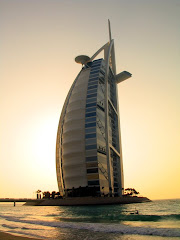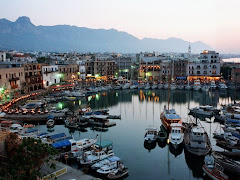1. REAL ALCÁZAR

Originally built for Moorish rulers and their harems, the Real Alcazar later served as the home of King Ferdinand and Queen Isabella; still today Spanish royalty stays here on visits to Sevilla. The Alcazar has a Mudejar Palace and a Gothic Palace. Among the gardens are the Jardin de la Danza, Jardin de Troya, Jardin de la Galera, Jardin de las Flores, Jardin del Principe, Jardin de las Damas, Jardin del Laberinto Viejo, and the Jardin de la Alcoba. There is a very large area that contains the New Gardens, built in the 19th century in the English style.
2. PLAZA de ESPAÑA
 The main feature of this plaza is its semicircular building complex. The Plaza de España is one of Seville's most easily recognised buildings and the epitome of the Moorish Revival in Spanish architecture. Today, the plaza mainly consists of Government buildings, including El Ayuntamiento. Each of the tiled alcoves by the walls of the Plaza represents a different province of Spain.
The main feature of this plaza is its semicircular building complex. The Plaza de España is one of Seville's most easily recognised buildings and the epitome of the Moorish Revival in Spanish architecture. Today, the plaza mainly consists of Government buildings, including El Ayuntamiento. Each of the tiled alcoves by the walls of the Plaza represents a different province of Spain.
3. CASA de PILATOS

The Casa de Pilatos is a fascinating blend of Gothic, Mudéjar, and Renaissance architectural styles. It was built by Moorish and Christian architects in 16th century. The highlights of the museum are its Roman sculptures and frescos by European masters, as well as gardens with the orange trees.
4. CATEDRAL DE SEVILLA/GIRALDA TOWER

Sevilla's cathedral is one of the largest Gothic churches in the world. There is a monument to Christopher Columbus and works by the likes of Francisco Goya, one of Spain's most famous artists inside the cathedral. Sevilla Cathedral with its abundance of art treasures was built between 1402 and 1506 on the site of the town's principal mosque. The Giralda Tower is attached to the cathedral. When the mosque that stood on the cathedral's current site was razed, this beautiful minaret remained. Today it stands as Sevilla's most famous symbol.
5. PLAZA DE TOROS DE LA MAESTRA/MUSEO DE LA MAESTRANZA

The famous Maestranza bullring is mentioned in many novels and films, and even featured in the opera Carmen. The enormous ring can hold over 13,000 people. The bullring's Museo de la Maestranza contains matador memorabilia and artwork, as well as the heads of slain animals.

Founded in 1835, Museo de Bellas Artes (Museum of Fine Art) has the finest collection of pictures in Spain after the Prado in Madrid, particularly of the works by 17th century Spanish painters.

The Museo del Baile Flamenco covers the history of flamenco and features biographies of famous dancers. One of the museum's highlights is its collection of colorful costumes worn by flamenco dancers Antonio Gades and Cristina Hoyos.

To the south of the Tobacco Factory in Sevilla, in the Avenida de Isabel la Católica, is the main entrance to the large Parque de María Luisa, laid out by the Infanta María Luisa Fernanda de Borbón.
9. BARRIO SANTA CRUZ

Barrio Santa Cruz is distinguished by its wrought-iron gates, flower-filled balconies, and tiny squares. This Andalusian neighborhood is known for its free flamenco shows.

The Hospital de la Caridad was built in the 1600s by Don Miguel de Mañara. The hospital is famous for its many paintings by Murillo and Valdés-Leal. Today, monks and nuns continue Mañara's tradition by continuing to care for the sick here.
Sevilla Hotels
Spanish Visa Requirements
TAGS: destinations discos scuba diving entertainment flights food forests fun golf hotels mountaineering mountains museums national parks night life packing paintings parachuting parasailing places resorts recreation restaurants sea







nice blog...
ReplyDeleteCan you post the top 10 attractions in Turkey? I am really interested in visiting there soon...
ReplyDeleteThanks for visiting World Travel. I am glad that you like it.
ReplyDeleteHope to see you again...
Hi Matt, thanks for visiting. Our next stop will be Antalya in Turkey. Hope you will like it.
ReplyDeleteLooking forward to hearing from you again...